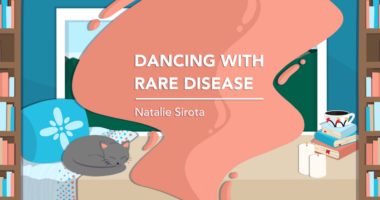
Hereditary angioedema and stress
Hereditary angioedema (HAE) is a rare genetic disease characterized by recurrent episodes of severe swelling.
One of the most common triggers of an HAE attack is stress, which can be from something physical or emotional.
HAE attack symptoms include swollen areas of skin that may be smooth or raised. Symptoms can vary from person to person or even from attack to attack in the same person.
Physical stress can be caused by injury, pain, viral infections, and some medical and dental procedures, including surgery, as well as hormonal fluctuations, allergens, and physical activity.
Emotional stress can be triggered by life events, school, or work, which can lead to anxiety or depression. Living with HAE also can increase emotional stress.
Stress management may include trying coping strategies, making lifestyle changes, and taking medications for HAE attack treatment.
How is stress connected to HAE?
HAE is caused by an inherited genetic mutation that results in an overproduction of a protein called bradykinin. Bradykinin increases blood vessel leakiness, which can cause swelling and eventually lead to an HAE attack.
Data has suggested a connection between stress and increased production of bradykinin. One study found that when people with HAE were in a controlled physical stress situation, triggering the autonomic nervous system –– which regulates involuntary physiologic processes such as heart rate and blood pressure –– there is an increase in a biochemical marker associated with bradykinin production and HAE disease severity.
People living with HAE also may find dealing with the symptoms themselves stressful, due to the unpredictability of where and when an attack may happen, fear of a sudden airway closure, or unbearable pain, as well as concern about passing the disease on to children.
Children and teenagers with HAE may experience high levels of anxiety, which can get worse as more areas of the body are affected by attacks. Adults with HAE may miss work and activities, especially when the attacks are in visible areas like the face.
People living with HAE can feel like they are caught in a cycle of anxiety about continuing attacks that then may trigger further episodes. Both the anxiety about the attacks and the attacks themselves can affect quality of life.

How can stress-related angioedema attacks be reduced?
Stress can be difficult to avoid, especially when it can be from the anxiety of having HAE. However, there are ways to try to manage it.
Staying healthy
Overall health is important for keeping stress under control. Some suggestions include:
- eating a nutritious diet
- drinking alcohol in moderation or not having it at all
- exercising regularly
- spending time in nature, such as walking outdoors, watching birds at a feeder, or looking at fish in an aquarium
- practicing deep breathing and other mental health self-care.
Getting appropriate medical treatment
Discussing treatment plans with a healthcare provider can help a person with HAE learn their triggers, how to avoid them, and what to do during an attack.
Treatment plans can vary based on factors such as age, triggers, comorbidities (other medical conditions), and personal preferences.
With the right medical care, people living with HAE are able to significantly decrease the number of attacks with long-term preventive treatments. Many people are able to achieve a level of response that boosts their quality of life.
Trying short-term preventive strategies before encountering known triggers, such as dental surgery or medical procedures, also may help avoid attacks.
Planning ahead and being prepared
Having a plan in place for what to do during an HAE attack makes it easier to get the right medical care when needed. Just knowing you are prepared may make you feel less stressed about the possibility of having an attack.
Some ways to prepare for an attack include the following:
- Create an action plan, in case of a health emergency, including locations of hospitals.
- Always have prescribed medications filled and up-to-date, especially before traveling.
- Carry HAE medications and know how to use them.
- Carry an HAE identification card with instructions on how to manage attacks.
- Provide written instructions to children’s caregivers, such as at day care and school, on avoiding HAE attack triggers and managing symptoms.
Identifying stress-related triggers
Learning what the common triggers are for an HAE attack may help prevent attacks, which may reduce stress.
Hormonal fluctuations, such as during menstruation, pregnancy, and breastfeeding, may cause HAE attacks to happen more often.
Keep a journal about the attacks, including the severity of the attack, possible trigger, treatment method, and response to treatment. This can be helpful when discussing treatment with healthcare providers.
Managing stress in daily life
Therapy, medications, lifestyle changes, and joining emotional support groups can be some ways to ease the stress of living with HAE.
Speak with a healthcare provider about medications and counseling. You also can ask about other suggestions for dealing with stress.
Lifestyle changes may help, including having a set routine and getting plenty of sleep.
It’s also helpful to:
- avoid dental problems by having regular checkups
- get an annual flu shot to reduce serious illness
- avoid infections by practicing good hand hygiene and wearing a mask when needed.
Nonprofit patient organizations, such as the U.S. Hereditary Angioedema Association (HAEA) and the HAEi, the international umbrella organization for the world’s hereditary angioedema patient groups, can provide emotional support for people living with HAE.
Take care of your mental health by using self-care tools, such as meditation and mindfulness, and other methods that promote relaxation.
HAE attack coping strategies
HAE attacks cannot always be avoided. To better manage one when it does happen, it’s important to know how an attack feels and how to respond to it.
Talk with family members and caregivers about ways to handle HAE attacks. Don’t hesitate to ask for help during an attack or when you think one is about to happen.
It’s also important for caregivers to know what to do during an HAE attack, which includes people caring for children at day care, school, clubs, or camps. Provide a written explanation of HAE and how to respond to an attack.
During an attack, it may help to lower anxiety with mindfulness exercises, including deep breathing, along with listening to calming music or petting a companion animal.
Angioedema News is strictly a news and information website about the disease. It does not provide medical advice, diagnosis, or treatment. This content is not intended to be a substitute for professional medical advice, diagnosis, or treatment. Always seek the advice of your physician or other qualified health provider with any questions you may have regarding a medical condition. Never disregard professional medical advice or delay in seeking it because of something you have read on this website.
Recent Posts
- Case highlights rare, life-threatening reaction to common antibiotic
- Dawnzera wins approval in EU as preventive treatment for HAE
- Preparing for an internet or power outage is crucial with angioedema
- A caregiver’s role when facing the ‘boss levels’ of HAE
- Guest Voice: In my big family, I’m not alone with HAE
 Fact-checked by
Fact-checked by 




